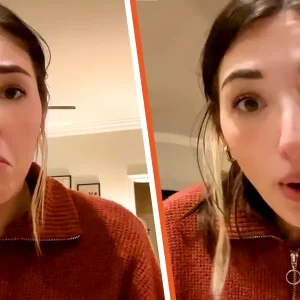When I was diagnosed with lymphoma, my husband, Craig, promised we’d get through it. I believed him. But while I fought for my life, he was pretending to be a “widowed dad” on a dating app. I wasn’t dead yet—and I was about to make sure he regretted every lie.
Chemotherapy drained me, but I clung to hope. Craig was distant, robotic, managing schedules but offering no real support. Then, Emma, our six-year-old, mentioned a “dress-up picture day.” Curious, I checked Craig’s iPad and found professionally taken photos of him and the kids—captioned: “Just a widowed dad looking for love.”
Widowed? I was right there, fighting to live. Rage surged through me. Instead of confronting him, I plotted.
I gathered evidence—every message, every flirty exchange—and called my lawyer. Then, I invited family for a “celebration dinner.” As Craig raised his glass to “new beginnings,” I clicked a remote. His dating profile flashed onto the screen.
Silence. His mother gasped. His father seethed. Craig stammered excuses, but the damage was done. I revealed my plan: full custody, my house, my inheritance—he’d get nothing.
Days later, as he packed his things, he whispered, “I never meant to hurt you.”
“You abandoned me when I needed you most,” I replied.
He left, and for the first time, I felt free. Cancer tried to break me. Craig tried to replace me. But I wasn’t just surviving—I was rising.





